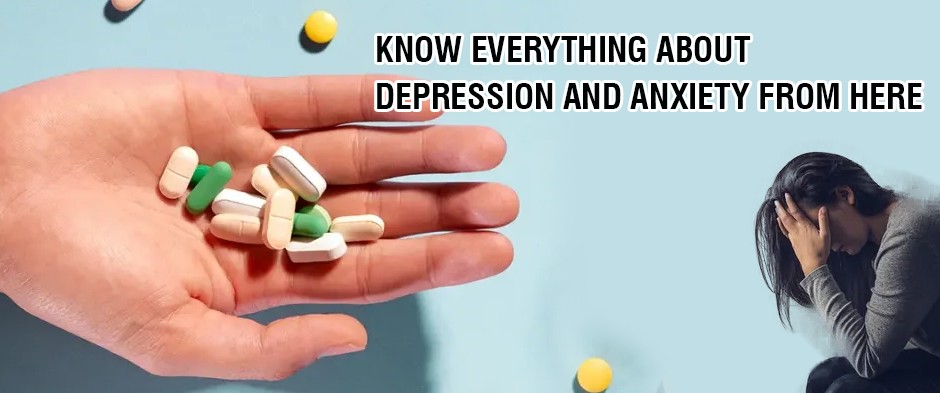free shipping
On All Orders

Depression and anxiety are mental health disorders that can seriously affect a person's life. Although they are two separate disorders, they often co-occur, meaning that a person may suffer from both at the same time. Depression is characterized by persistent feelings of sadness, anxiety, emptiness, worthlessness, and hopelessness. It can also include physical symptoms such as fatigue, sleep disturbances, and changes in appetite.
Anxiety is a feeling of unease, fear, or worry that can range from mild to severe. Symptoms of anxiety can include restlessness, difficulty concentrating, irritability, muscle tension, and physical signs of panic such as sweating or an increased heart rate.
The prevalence of depression and anxiety is increasing in the United States. According to the National Institute of Mental Health, an estimated 17.3 million adults in the U.S. had at least one major depressive episode in 2017. Additionally, an estimated 8.3 million adults in the U.S. had at least one anxiety disorder in the same year.
Individuals suffering from these disorders may have difficulty functioning at work or school, maintaining relationships, or simply enjoying life. It is important to be aware of the signs and symptoms of depression and anxiety so that people can seek help if necessary. Treatment for depression and anxiety typically combines psychotherapy with medication.
Depression and anxiety can affect anyone at any age, but understanding the causes can be difficult. In this blog post, we’ll take a look at the three main causes of depression and anxiety: biological, psychological, and social factors.
Biological factors may play a role in depression and anxiety, with many researchers pointing to genetics, physical changes in the brain, and changes in hormones as potential causes. For example, people with a family history of depression or anxiety may be at a higher risk of developing the conditions themselves. Additionally, physical changes in the brain, such as decreased activity in certain regions of the brain, may be linked to depression and anxiety. Finally, changes in hormone levels, such as those associated with pregnancy or menopause, may also contribute to depression and anxiety.
Psychological factors can also play a role in depression and anxiety. For example, people who have experienced trauma or have a history of negative thinking may be more likely to develop depression or anxiety. Additionally, people who lack a sense of purpose or have difficulty dealing with stress may also be more prone to developing depression or anxiety.
Finally, social factors may also contribute to depression and anxiety. People who lack a strong social support system, have difficulty communicating with others, or experience social isolation may be more likely to develop depression or anxiety. Additionally, people who experience discrimination or abuse may also be at a higher risk for developing depression or anxiety.
best medicine for anxiety and depression can be incredibly debilitating conditions that can have a major impact on how we live and interact with others. Fortunately, there are a variety of treatments available that can help those who are struggling with these conditions. Here, we will explore three of the most common treatments for depression and anxiety – medication, cognitive behavioral therapy, and support groups.
Medication
Medication is one of the most popular treatments for anxiety depression medication. Common medications prescribed for these conditions include SSRIs (selective serotonin reuptake inhibitors) and SNRIs (serotonin-norepinephrine reuptake inhibitors). These medications are designed to help balance the levels of neurotransmitters in the brain, which can help to reduce symptoms of depression and anxiety. It’s important to note that these medications can take several weeks to begin working, and they may have side effects such as nausea, weight gain, and insomnia.
Cognitive Behavioral Therapy
Cognitive Behavioral Therapy (CBT) is another popular treatment for depression and anxiety. This type of therapy focuses on changing the thought patterns and behaviors associated with depression and anxiety. It can be used in individual sessions or in group settings, and it often involves learning new skills and techniques for managing the symptoms of depression and anxiety. One of the benefits of CBT is that it can be tailored to the individual, so that it can be tailored to their specific needs and goals.
You can buy anxiety depression pills online at dailycaremedication.com at the best rate!
On All Orders
Contact us 24 hours a day
Simply return it within 30 days
We ensure secure payment

